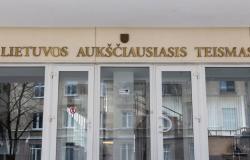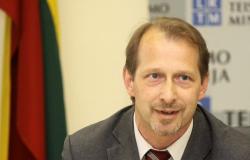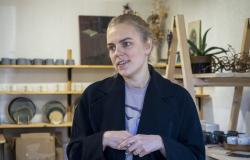179 pedagogues have already completed their studies at higher education institutions, and 381 are still studying. A total of 560 pedagogues have chosen these studies. These studies are free of charge for them.
Edgaras Gervaitis, director of Vilniaus Oz Gymnasium, studying applied informatics at VMU, says that the program organized by the EdTech center is a great opportunity for educators to improve their information technology skills, acquire basic knowledge, raise their qualifications and improve the educational process.
“The importance of technologies is increasing every year, so the information provided during studies is useful both in today’s context and looking into the future. The acquired competences showed me how various tools can be applied not only in everyday life, but also in the working environment, for example, improving the educational process or managing administrative processes. I also share a considerable amount of information with my community, the teachers of Vilnius Oz Gymnasium, when I see that certain processes can be integrated into their work as well,” says E. Gervaitis.
Committed teachers to help
According to him, one of the biggest advantages of this program is personalized teaching, because during each lecture, teachers communicate with students, observe how they are learning, look for compromises, how to overcome the challenges that have arisen, take into account the competences and experience of each teacher.
“I think that one of the reasons why teachers do not decide to study is the lack of competences, the fear that it will be difficult, the tasks will be insurmountable. But my group includes people of all ages and backgrounds, some of whom don’t even come from a hard science background or have had little to no prior experience with the latest technology. I can assure you that the teachers take this into account and present the study material in such a way that anyone can understand it,” says the director of Vilnius Oz Gymnasium.
Algita Šablinskienė, who works as an information technology teacher at the KTU engineering lyceum, seconded him: “I think that the fear of diving into the world of technology is more often faced by older people – they say that they won’t know how, they won’t be able to, it will be too difficult.” However, while studying, I noticed that they are the ones who achieve better results than those who are more confident in their abilities. There is really nothing to be afraid of, especially since the teachers are also benevolent, ready to help and spend extra time if there are difficulties.”
The most important thing is to plan time for studies
A. Šablinskienė, who graduated from the 60-credit Informatics subject module at Kaunas University of Technology (KTU) Faculty of Informatics, does not stop learning and continues to learn – according to her, technologies change quickly, new tools and programs appear, so it is important to keep up and keep pace with them.
When talking about the challenges they had to face during their studies, both specialists highlight the lack of time: combining studies with work and personal life is not easy, however, if you develop the right time planning skills, everything is possible, say E. Gervaitis and A. Šablinskienė.
The program covers the basics of virtual training methodology, Python programming, algorithms and object-oriented programming, practical skills of digital content creation, data research and smart information technologies are acquired.
According to Indrės Šuolianė, head of the EdTech Center, the program aims to strengthen the digital competences of educators, expand the circle of teachers who are well versed in the field of information technology, increase the potential of educators in the future, and help colleagues in schools transition to modern and innovative education.
“After graduating, pedagogues will also be able to develop students’ digital literacy, encouraging their interest in digital technologies,” says I.Šuolienė.
Educators wishing to participate in the digital competence development program could choose to study at one of the following higher education institutions: Kaunas University of Technology (KTU), Vilnius College (VIKO), Vytautas the Great University (VDU), Vilnius University (VU) or Vilnius University Šiauliai Academy (VU ŠA ).
The project “Digital transformation of education” is implemented according to the economic recovery and resilience-building plan “New Generation Lithuania”, financed by the funds of the European Union’s economic recovery and resilience-building measure “NextGenerationEU”.






